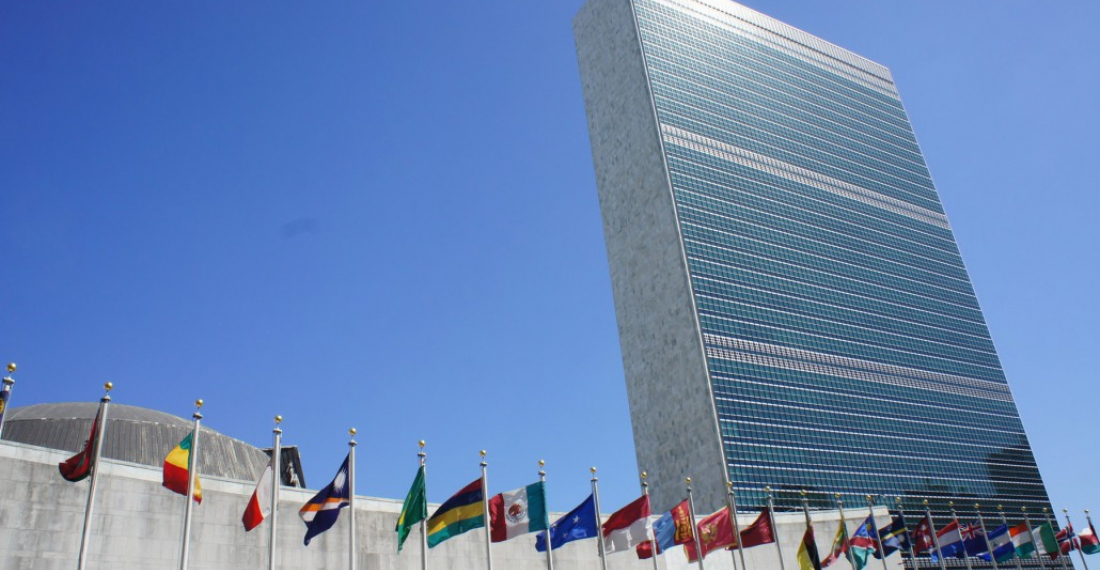Many of the world's top diplomats this week congregated in New York for the annual session of the United Nations General Assembly. There has been intensive diplomatic exchanges between Heads of state and government, foreign ministers and other senior diplomats on the margins of the big UN event.
One of the topics that has been in focus is Nagorno-Karabakh and the future of Armenian-Azerbaijani relations, and wider issues related to peace in the South Caucasus region.
The Turkish foreign minister, Mevlüt Cavusoglu, and US Secretary of State Antony Blinken met for a one-hour meeting on Tuesday (21 September), with Afghanistan, Syria and the South Caucasus high on the agenda.
“We’re so grateful to Turkey for its very strong partnership in Afghanistan and the work that we continue to do together there. Lots to talk about there on Afghanistan going forward, but also many other regional issues, from Syria to the Caucuses,” Blinken said at the beginning of the meeting.
“And Turkey and the United States stand together as strong partners and NATO Allies and look forward to covering a lot of ground in the time we have today,” he added.
Cavusoglu, for his part, thanked Blinken “for the excellent cooperation on Afghanistan, in many areas”.
“Of course, we will continue working on Afghanistan together, we will continue our cooperation... And while we continue this cooperation, we will do our best to strengthen our bilateral relations work,” he stressed.
After the meeting, on Twitter Cavusoglu said, “Discussed with my colleague Secretary Blinken the latest developments in Afghanistan, Syria and the Caucasus. Will continue our dialogue with the United States on regional issues and common areas of cooperation at all levels.”
According to a senior US State Department official, Blinken and Çavusoglu discussed the ways to de-escalate tension between Armenia and Azerbaijan following the end of war in the Nagorno-Karabakh region.
“The question now becomes whether, with U.S. support, with other Minsk Group countries’ support, with Turkey’s support, we can do more to facilitate a de-escalation of tensions between the two, both along the border, with regard to remaining detainees, with regard to remaining mines, and then take some – see them – help them take some small steps which might lay the path towards a larger peace and reconciliation process,” the official said.
“So, the Secretary made clear to Turkey, which has been very much involved in this and is a neighbour, that we are prepared to be helpful if we can be. We are also at a level below the Secretary having bilateral meetings with the Armenians and the Azerbaijanis this week and making the same offer there,” the official added.
Also in New York are the co-Chairs of the OSCE Minsk Group - representing France, Russia and the United States.
The Russian deputy minister of foreign affairs, Andrei Rudenko, told the TASS news agency that the co-chair plan to meet the foreign ministers of Armenia and Azerbaijan who are also in New York.
“At present, the three co-chairs are planning to meet on the sidelines of the UN General Assembly in New York - both with each other and with the foreign ministers of Armenia and Azerbaijan. If this takes place, it would be a good sign that the process of normalisation between the two countries is taking shape in practice", the deputy minister said.
Regional co-operation in the South Caucasus in a meeting between Turkish president Recip Tayip Erdogan, and Georgian prime minister Irakli Garibashivili, both of whom are also in New York.
Garibashvili later tweeted:
Fruitful discussions w/@RTErdogan on matters of bilateral and regional cooperation. Discussed prospects of deepening 🇬🇪-🇹🇷 strategic partnership in pursuit of regional peace and stability. pic.twitter.com/MxyTyAHBBx
— Irakli Garibashvili (@GharibashviliGe) September 22, 2021



